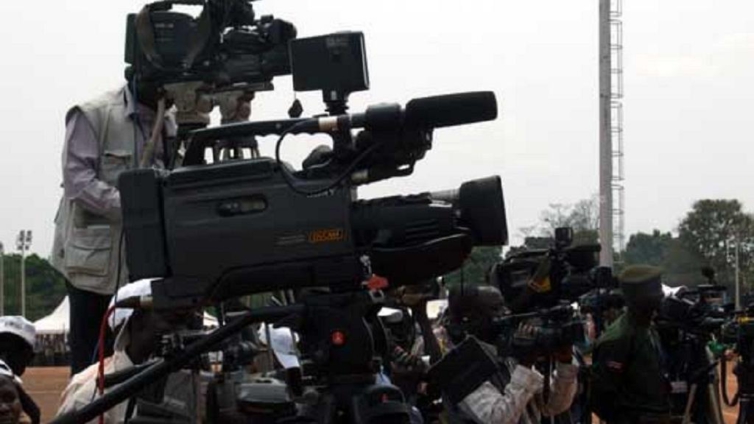The Media Foundation for West Africa has put together an advisory for journalists in the sub-region who are covering the new coronavirus pandemic.
As the cases of COVID-19 soar in West Africa, so do the media’s monitoring, reporting and education role become more onerous. Coupled with the need to keep pace with the emergencies, journalists also need to be abreast of the recommended safety measures to protect themselves on duty and to effectively inform and educate the public.
It is in view of this that the Media Foundation for West Africa (MFWA) urges the media in the sub-region to thoroughly inform themselves, and adhere to the safety measures issued by the health authorities in order to ensure their own safety and contribute to the public education on the COVID-19.
Before Coverage and During Coverage
If you are an international journalist or media outlet intending to cover the pandemic in West Africa, it is worthy to note that currently the following countries have as at March 24, 2020, imposed travel restrictions: Burkina Faso, Cape Verde, Cote d’Ivoire, Ghana, Guinea, Liberia, Mali, Mauritania, Nigeria, Senegal, Sierra Leone, Togo and The Gambia.
Also, note that countries such as Ghana, Benin, Guinea Bissau are enforcing other measures including mandatory 14-days quarantine for all visitors.
Media Managers and owners:
- Observe any advisories announced by local health authorities.
- Ensure that journalists who fall within the high-risk categories of contracting the virus are exempted from providing on-site coverage of COVID-19.
- Provide protective gears such as a hazmat suits, facemask, gloves, disposable footwear etc for journalists where necessary.
- Secure health insurance for all journalists that would be covering the COVID-19 pandemic.
- Ensure regular cleaning and disinfection of microphones, computers and other equipment with anti-bacterial wipes where necessary.
- Provide hand washing stations and sanitizers at the premises
- Ensure visitors to the media outlets such as panelists wash their hands or use hand sanitizers before entering premises.
- Observe social spacing in the newsroom, studios and offices and keep numbers at a safe minimum
Journalists:
- Research on the latest security situation at your destination.
- Ensure you have hand sanitizers throughout the period of your coverage.
- Before visiting a health facility or a quarantine zone, enquire about the hygiene measures that are in place before visiting. Read and adhere to these guidelines during coverage. If it is not clear what measures are in place, do not embark on the coverage.
- When covering a health facility or a treatment site, use protective gear provided by management of your outlet or procure some if no provisions are made.
- During coverage, keep a distance of at least 6 feet from anyone and avoid anyone showing symptoms of COVID-19. If anyone near you sneezes or coughs, immediately cover your nose and mouth, and turn away.
- When at a health or treatment facility avoid placing your equipment on the floor or other surfaces. Always clean your equipment with antimicrobial wipes.
- Do not touch any surfaces with your bare hands as they may be contaminated.
- Wash your hands regularly with water and soap throughout the period. Use anti-bacterial sanitizer or wipes if hot water and soap is not available and immediately use soap and water once available.
- Avoid touching your face with your hands while in the gloves.
- Ensure facemasks are fit properly and avoid touching the mask and only remove it by the straps.
- Replace the mask with a new one when the one you are wearing becomes damp.
- Wash your hands immediately you remove the mask.
- Facemasks, gloves, disposal footwear etc must be disposed off immediately you exit the site. Do no reuse facemasks, gloves or disposal footwear.
- Always follow the guidance and instructions of local health authorities
After Coverage
Media managers and owners:
- Allow for journalists who have covered treatment facilities to work from home while on self-isolation.
- Support journalists with healthcare should they contract the virus while covering the pandemic.
- Make provisions to provide psychological support to journalists covering the COVID-19.
Journalists:
- Monitor your personal health after leaving a health or treatment facility.
- Observe the WHO-advised 14 days self-quarantine before returning to work.
- Seek medical attention if you develop any symptoms of COVID-19 within 14 days of self-quarantine.
- Inform your employer or manager if you develop symptoms so that colleagues that might have come into contact with you may also take the necessary steps.
Latest Stories
-
Shamima Muslim urges youth to lead Ghana’s renewal at 18Plus4NDC anniversary
11 minutes -
Akufo-Addo condemns post-election violence, blames NDC
19 minutes -
DAMC, Free Food Company, to distribute 10,000 packs of food to street kids
2 hours -
Kwame Boafo Akuffo: Court ruling on re-collation flawed
2 hours -
Samuel Yaw Adusei: The strategist behind NDC’s electoral security in Ashanti region
2 hours -
I’m confident posterity will judge my performance well – Akufo-Addo
2 hours -
Syria’s minorities seek security as country charts new future
3 hours -
Prof. Nana Aba Appiah Amfo re-appointed as Vice-Chancellor of the University of Ghana
3 hours -
German police probe market attack security and warnings
3 hours -
Grief and anger in Magdeburg after Christmas market attack
3 hours -
Baltasar Coin becomes first Ghanaian meme coin to hit DEX Screener at $100K market cap
4 hours -
EC blames re-collation of disputed results on widespread lawlessness by party supporters
4 hours -
Top 20 Ghanaian songs released in 2024
4 hours -
Beating Messi’s Inter Miami to MLS Cup feels amazing – Joseph Paintsil
5 hours -
NDC administration will reverse all ‘last-minute’ gov’t employee promotions – Asiedu Nketiah
5 hours

